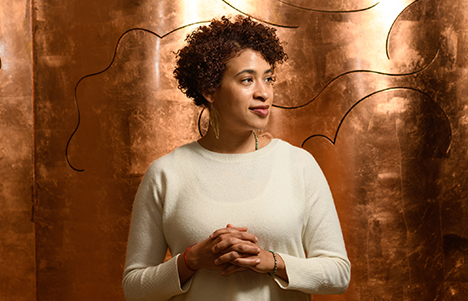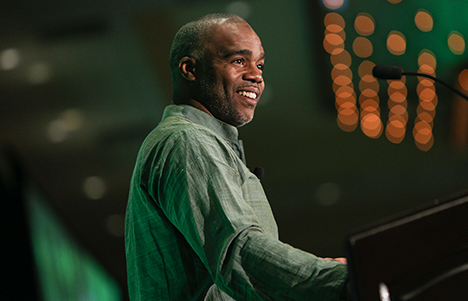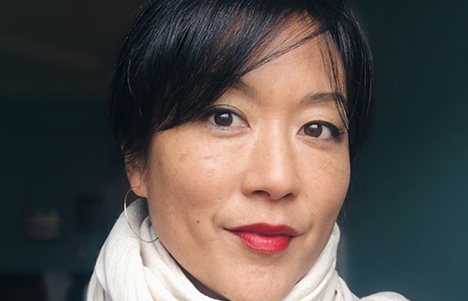


Power surrounds us and is an inescapable part of life. But its nature can be a little hard to pin down. Where does it come from, and how can it work for us? To better understand power, we asked Jungwon Kim of the Rainforest Alliance, author Ibrahim Abdul-Matin, and meditation teacher Kate Johnson what power means to them and how we can move through life more powerfully.

“Greed has power, hatred has power, and fear has power. But so does love, so does generosity—and these are the kinds of powers that can fuel profound social change. I think part of our [mindfulness] practice is to look within and notice what is powering our actions in the world. If we know strategies and tools to shift our power source from fear to trust, from hatred to curiosity, then we can actually make a different kind of impact, one that is more aligned with our values.
We each have great individual and personal power that we can use to transform ourselves, to transform our relationships, and to transform the world. Paradoxically, we might not always be aware of our power, especially if we happen to be empowered by society. What’s amazing is that we can also use our individual and our relational power to start to shift these powerful social systems.”

“Knowing who you are is an important part of knowing what you want—knowing how you want the world to be. Power, in this instance, becomes about freedom, and freedom is not just the freedom to do whatever you want. It’s freedom to control your lower self, to master yourself. Mastery of yourself and controlling the part of yourself that’s going to hurt other people—that is true freedom. True freedom is being able to say ‘no’ to certain things that are harmful, to stop people when they’re getting hurt. That’s true freedom because you’re allowing yourself to be the best human you can possibly be. That’s where the work is when it comes to inner power. You have to cultivate practices that are going to bring out the best in you, as opposed to practices that are going to let you go to the bottom rung and just do whatever you might feel is necessary, or what your body might feel is necessary. To me, mastery is critical to personal power.”

“To me, power is not only about brute strength or military force. Power is not always relational. Power is the drive that we have within us to express or create a vision that we have. When we think about power in those terms, we no longer measure it in degrees; we measure it in terms of the skill with which we are able to bring that vision to life. That allows us to expand the vocabulary we use to describe power to include terms like imagination, creativity, language, or even the ability to connect deeply with other people. And when we talk about connection, we begin to touch collective power, or power between us. Power between us is the ability to understand your vision, to look around and find others who share it, and to work toward it together, with each person contributing their best effort and unique skills to that shared vision.”

Kate Johnson works at the intersections of spiritual practice, social action, and creativity. She has been practicing Buddhist meditation in the Western Insight/Theravada tradition since her early twenties and is empowered to teach through Spirit Rock Meditation Center. She holds a BFA in dance from the Alvin Ailey School/Fordham University, and MA in performance studies from NYU.
Kate is a core faculty member of MIT’s Presencing Institute, and has trained hundreds of leaders and change-makers in using Social Presencing Theater, a mindfulness and dance improvisation methodology used to inform strategic planning and systems change in our complex world.

Ibrahim Abdul-Matin is a bright, playful spirit who authentically reflects and acts on bold questions. His artful blending of idealism and spiritual commitment with pragmatic application has led him into government, public administration, parenthood, and media. His unique voice has helped elevate the environmental vision of Islam, the spiritual opportunity of parenting, and the cultural and political side of sports.

Jungwon Kim is the head of the creative and editorial team at the Rainforest Alliance, an international nonprofit organization working with farmers, forest communities, governments, businesses, and consumers to build a world where people and nature thrive in harmony.
Get the latest news and stories from the Rubin, plus occasional information on how to support our work.